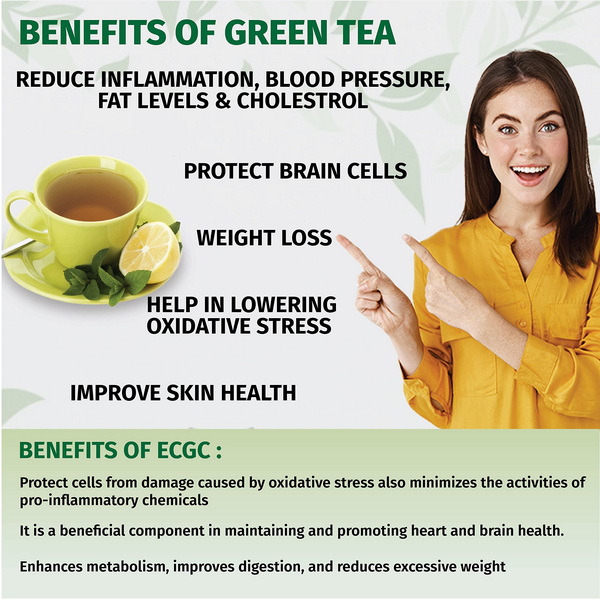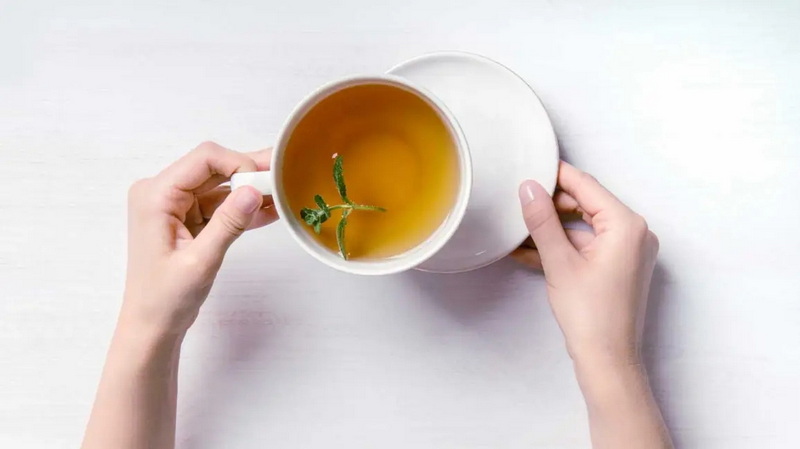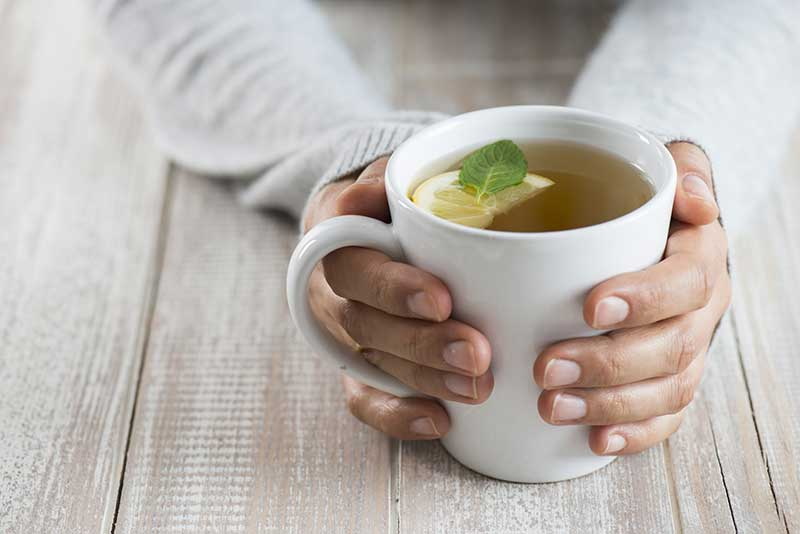Content Menu
● Understanding High Blood Pressure
>> Causes of High Blood Pressure
● What is Green Tea Extract?
>> Forms of Green Tea Extract
● Health Benefits of Green Tea Extract
>> 1. Antioxidant Properties
>> 2. Blood Pressure Reduction
>> 3. Cholesterol Management
>> 4. Weight Management
● Mechanisms of Action
>> 1. Endothelial Function Improvement
>> 2. Oxidative Stress Reduction
>> 3. Anti-inflammatory Effects
● Safety Considerations
>> 1. Caffeine Content
>> 2. Medication Interactions
>> 3. High Doses Risks
● Recommended Intake
>> 1. Moderate Consumption
>> 2. Supplement Caution
● Additional Considerations for People with High Blood Pressure
>> 1. Dietary Changes
>> 2. Regular Physical Activity
>> 3. Stress Management Techniques
● Conclusion
● FAQ
>> 1. Can I drink green tea if I take medication for high blood pressure?
>> 2. How much green tea should I drink daily for health benefits?
>> 3. Are there any side effects of taking green tea extract?
>> 4. Does green tea help with weight loss?
>> 5. Is it safe to take green tea extract during pregnancy?
● Citations:
High blood pressure, or hypertension, is a prevalent condition that affects millions worldwide. As individuals seek natural remedies to manage their health, green tea and its extracts have gained attention for their potential benefits. This article explores whether people with high blood pressure can safely consume green tea extract, examining the evidence, benefits, risks, and recommendations.

Understanding High Blood Pressure
Hypertension is characterized by consistently elevated blood pressure levels. It poses significant health risks, including heart disease, stroke, and kidney damage. Managing blood pressure often involves lifestyle changes and medications. However, many individuals are interested in dietary supplements like green tea extract as complementary options.
Causes of High Blood Pressure
Understanding the causes of high blood pressure is essential for effective management. Common factors include:
- Genetics: A family history of hypertension can increase your risk.
- Diet: High sodium intake and low potassium consumption can contribute to elevated blood pressure.
- Physical Inactivity: Sedentary lifestyles are linked to weight gain and hypertension.
- Obesity: Excess body weight increases the workload on the heart.
- Stress: Chronic stress may lead to temporary spikes in blood pressure.
- Age: Blood pressure tends to rise with age due to arterial stiffness.
What is Green Tea Extract?
Green tea extract is derived from the leaves of the Camellia sinensis plant and is rich in antioxidants known as catechins. The most notable catechin is epigallocatechin gallate (EGCG), which is believed to contribute to many of the health benefits associated with green tea.
Forms of Green Tea Extract
Green tea extract is available in various forms, including:
- Loose Leaf Tea: The traditional form, brewed in hot water.
- Tea Bags: Convenient for quick preparation.
- Powdered Matcha: A concentrated form where the whole leaf is consumed.
- Capsules or Tablets: Supplements that provide a standardized dose of active compounds.
Health Benefits of Green Tea Extract
Research suggests that green tea extract may offer several health benefits, particularly concerning cardiovascular health:
1. Antioxidant Properties
Green tea extract contains powerful antioxidants that combat oxidative stress, which can contribute to hypertension. Antioxidants help neutralize free radicals in the body, reducing inflammation and protecting cells from damage.
2. Blood Pressure Reduction
Several studies have indicated that green tea consumption can lead to a modest reduction in both systolic and diastolic blood pressure. For instance, a meta-analysis found that green tea significantly lowered systolic blood pressure by approximately 1.98 mmHg and diastolic blood pressure by 1.92 mmHg in various trials.
3. Cholesterol Management
Green tea extract may help lower total cholesterol and LDL (bad) cholesterol levels, further supporting heart health. A study published in the "American Journal of Clinical Nutrition" found that participants who consumed green tea experienced a significant reduction in LDL cholesterol levels compared to those who did not.
4. Weight Management
Some studies suggest that green tea extract can aid in weight loss, which is beneficial for individuals with hypertension as excess weight can exacerbate the condition. The combination of caffeine and catechins in green tea may enhance metabolic rate and fat oxidation.

Mechanisms of Action
The potential benefits of green tea extract on blood pressure are attributed to several mechanisms:
1. Endothelial Function Improvement
Green tea catechins may enhance nitric oxide production, promoting vasodilation and improving blood flow. Improved endothelial function can lead to better regulation of blood pressure.
2. Oxidative Stress Reduction
By reducing oxidative stress and inflammation, green tea extracts may help maintain healthy vascular function. This effect contributes to overall cardiovascular health.
3. Anti-inflammatory Effects
Chronic inflammation is a risk factor for hypertension. Green tea's anti-inflammatory properties may help mitigate this risk by reducing markers of inflammation in the body.
Safety Considerations
While green tea extract has potential benefits, there are safety considerations for individuals with high blood pressure:
1. Caffeine Content
Green tea contains caffeine, which can temporarily raise blood pressure. Individuals sensitive to caffeine or those taking certain medications should consult their healthcare provider before consuming green tea extract.
2. Medication Interactions
Green tea may interact with medications such as beta-blockers or anticoagulants like warfarin. It is crucial for individuals on these medications to discuss their green tea intake with their doctor.
3. High Doses Risks
High doses of green tea extract supplements have been linked to liver damage in rare cases. Therefore, moderation is key when considering supplementation.
Recommended Intake
For those considering incorporating green tea or its extracts into their regimen:
1. Moderate Consumption
Drinking 3-5 cups of brewed green tea daily is generally considered safe for most people and may provide cardiovascular benefits without significant risks.
2. Supplement Caution
If opting for supplements, it's essential to choose high-quality products and adhere to recommended dosages. Consulting a healthcare professional before starting any new supplement is advisable.
Additional Considerations for People with High Blood Pressure
In addition to consuming green tea extract, individuals with high blood pressure should consider other lifestyle modifications:
1. Dietary Changes
Adopting a heart-healthy diet can significantly impact blood pressure levels:
- DASH Diet: The Dietary Approaches to Stop Hypertension (DASH) diet emphasizes fruits, vegetables, whole grains, lean proteins, and low-fat dairy while reducing sodium intake.
- Limit Processed Foods: Processed foods often contain high levels of salt and unhealthy fats that can elevate blood pressure.
2. Regular Physical Activity
Engaging in regular physical activity helps maintain a healthy weight and lower blood pressure:
- Aim for at least 150 minutes of moderate aerobic exercise each week.
- Include strength training exercises at least twice a week.
3. Stress Management Techniques
Practicing stress management techniques such as yoga, meditation, or deep-breathing exercises can help lower blood pressure by promoting relaxation.
Conclusion
In conclusion, people with high blood pressure may benefit from consuming green tea extract as part of a balanced diet. The evidence suggests that it can help lower blood pressure and improve overall cardiovascular health through various mechanisms such as antioxidant activity and improved endothelial function. However, individuals should be cautious regarding caffeine intake and potential interactions with medications. Consulting a healthcare provider before making significant dietary changes or starting new supplements is essential for ensuring safety and efficacy.

FAQ
1. Can I drink green tea if I take medication for high blood pressure?
Yes, but consult your healthcare provider first to ensure there are no interactions with your medication.
2. How much green tea should I drink daily for health benefits?
Drinking 3-5 cups of brewed green tea daily is generally considered safe and beneficial.
3. Are there any side effects of taking green tea extract?
Possible side effects include increased heart rate due to caffeine and potential liver issues at high doses.
4. Does green tea help with weight loss?
Green tea may support weight management due to its metabolism-boosting properties but should not be relied upon solely for weight loss.
5. Is it safe to take green tea extract during pregnancy?
Pregnant individuals should avoid high doses of caffeine and consult their healthcare provider regarding any supplements.
Citations:
[1] https://www.cebm.ox.ac.uk/research/projects/green-tea-and-blood-pressure-effects
[2] https://www.healthline.com/nutrition/10-benefits-of-green-tea-extract
[3] https://www.mountsinai.org/health-library/herb/green-tea
[4] https://www.alamy.com/stock-photo/green-tea-extract.html
[5] https://encyclopedia.pub/video/291
[6] https://www.youtube.com/watch?v=kb2wbPwqM_Q
[7] https://www.webmd.com/vitamins/ai/ingredientmono-960/green-tea
[8] https://journals.lww.com/md-journal/fulltext/2020/02070/effect_of_green_tea_supplementation_on_blood.36.aspx
[9] https://www.youtube.com/watch?v=A7tjlpYdUGU
[10] https://www.nature.com/articles/srep06251






























